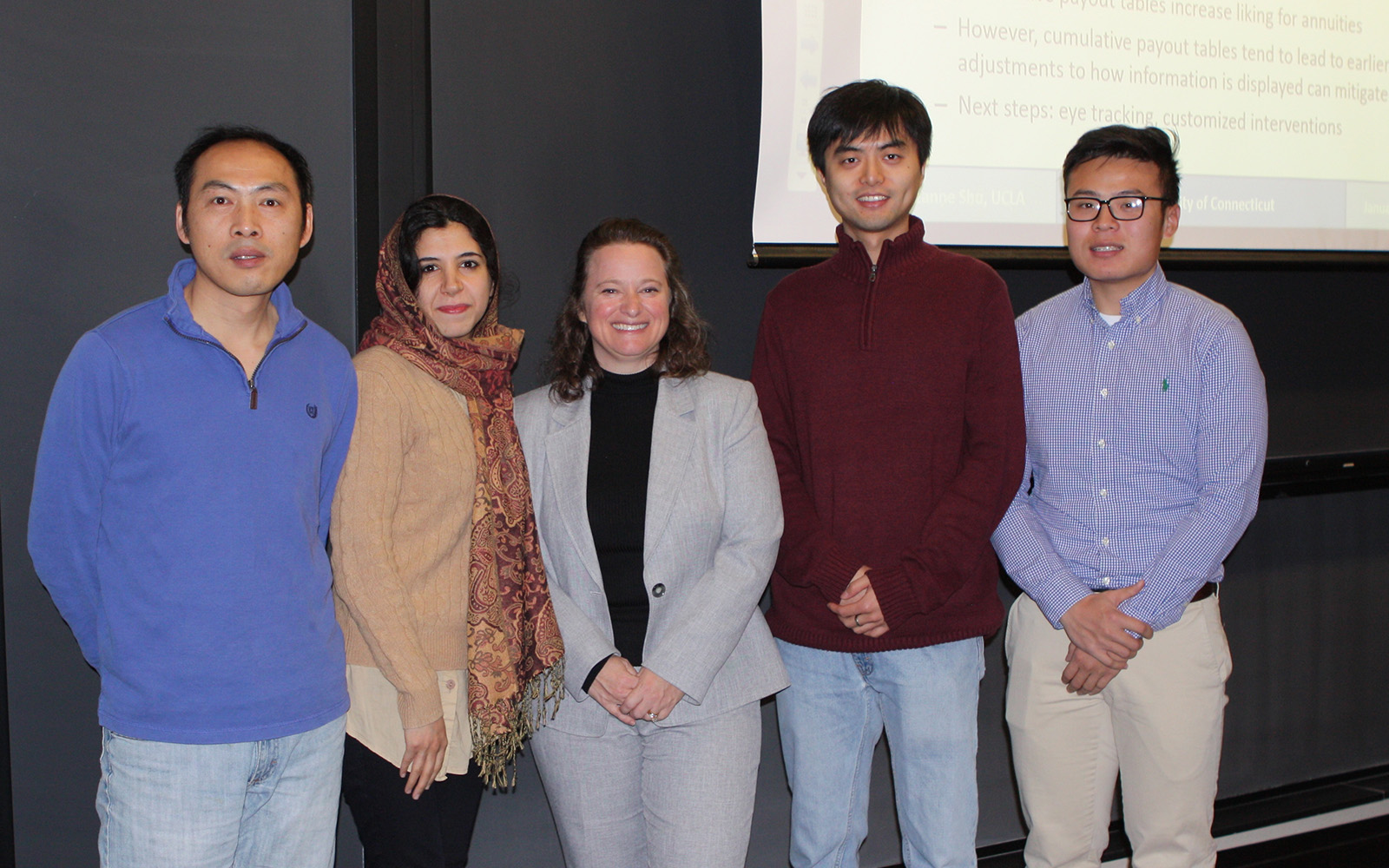Science Codex – How much do consumers care about the carbon footprint of the products they buy? Would they care more if the goods were labeled with emissions data? Does it matter at which stage in the lifecycle of a product the carbon is emitted? Research published in the International Journal of Environmental Policy and Decision Making offers a way to find out.
Month: February 2016
Fairfield Ups Economic Development Effort
Internship Success Story: Isabelle Hou
Isabelle Hou is a marketing major who completed an internship with Alibaba Group, a leading online and mobile marketplace for retail and other services in the world headquartered in Hangzhou, China. She heard about the internship from her cousin when she studied abroad in China last semester. After she completed her application and essay, which were done in English, she landed a group interview and an individual interview with HR. A month later, she was offered the internship position.Continue Reading
Oliver Stone, Charles Osgood Selected to be UConn Commencement Speakers
Walmart to Close 269 Stores, 154 of them in the U.S.
Why Are There So Many Mattress Stores?
WFMY News 2 – John Clapp studies retail at the University of Connecticut. He says it’s common for companies to cover an area with their own stores.
“It’s a game they’re playing with each other. Of course they’re trying to do well with sales but they’re also trying to block each other out,” says Clapp.
UConn Names 2016 Honorary Degree Recipients
UConn Today – The director of the National Science Foundation, an Academy Award-winning producer, and a U.S. Court of Appeals judge are among UConn’s honorary degree recipients this year. Each year, the University bestows honorary degrees in recognition of extraordinary and lasting distinction that represents the highest intellectual and moral values.
Gilson on Leadership Conference
SNY – Kerith Burke interviews UConn business professor Dr. Lucy Gilson about the Geno Auriemma UConn Leadership Conference.
Risk in Retirement

Ph.D. Student Speaker Series Continues with Marketing
UCLA Marketing Professor Suzanne Shu discussed retirement savings, and how individuals make their decisions about how much to save and how much to spend, during a presentation to faculty and doctoral students on Jan. 29.
“Risk, Ownership and Loss in Decumulation During Retirement,” was the topic of her speech, presented as part of the School of Business Ph.D. Student Speaker Series, which was attended by faculty and doctoral students. Continue Reading
Venture Capital Increases a Startup’s Chances of Issuing Stocks or Finding a Buyer
LSE Business Review – An ultimate challenge for technology entrepreneurs is the need for capital to continue to innovate, sustain, and commercialise their innovation. The considerable risks associated with the technological feasibility, business model credibility, and product or service viability severely limits access to capital, yet angel investors and venture capitalists fill this need by investing in startups in exchange for an equity stake in the company. Does private equity, in fact, provide value-added services by influencing startup innovation and commercialisation beyond mere capital infusion?